Share
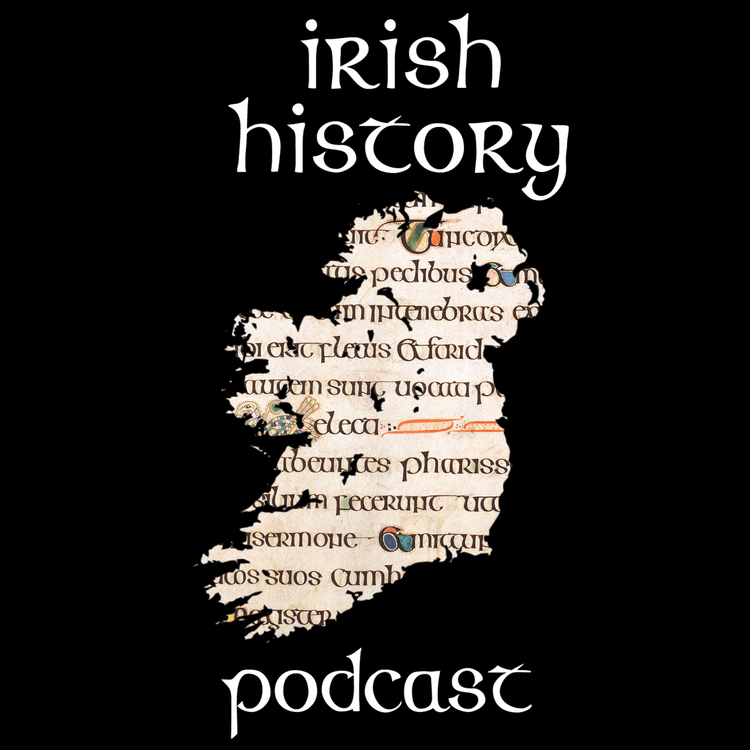
Irish History Podcast
The US Civil War and The Great Famine
The Great Hunger is not something we associate with war and certainly not wars in other countries. However the Famine is inextricably linked to the story of the American Civil War (1861-1865). Around 200,000 Irish people, most of them famine or post famine emigrants, fought in the conflict making it one of the largest wars in terms of Irish participation.
This podcast is structured around an interview with Damian Shiels of www.Irishamericancivilwar.com someone who has tirelessly researched the stories of these people over the last eight years. Damian’s interview provides fascinating insights into the forgotten lives of the Irish who fought in the US Civil War.
Become a supporter & access dozens of exclusive podcasts
Patreon www.patreon.com/irishpodcast
Acast https://plus.acast.com/s/irishhistory
📢June 2023 Update - New Walking Tour 📢
I am thrilled to announce my brand new walking tour in Ireland's oldest city, Waterford. Join me and explore 1,000 years of history from the Vikings to Cromwell & Strongbow to the Irish Revolution. Enhanced by wireless headsets 🎧 you will hear the sounds of the city through the ages and the words of the people who made history in Waterford. Tours take place each Saturday and places are strictly limited to 15 people. Book your place today at www.Irishhistorypodcast.ie/tours
*New Book: A Lethal Legacy - A History of Ireland in 18 Murders *
My new book A Lethal Legacy - A History of Ireland in 18 Murders is available for Pre-Order now. If you order your copy today at Easons and use the promo code FD10 you get a 10% discount
Easons https://www.easons.com/a-lethal-legacy-finbar-dwyer-9780008555993
Promo code FD10
More episodes
View all episodes
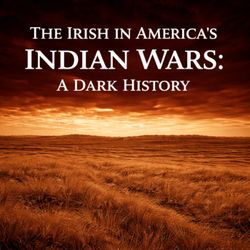
The Irish in America's Indian Wars: A Dark History
50:58|In the late nineteenth century the United States pushed west and its expansion unleashed devastating violence against Native Americans. Forced from their lands and herded onto reservations Native communities faced a relentless campaign of dispossession and massacre. Thousands of miles away in Ireland deep poverty drove many to enlist in the US Army and they became participants in these same frontier wars. This contradiction is stark. People who had been pushed from their own homes by hardship helped push Native Americans from theirs and in some cases took part in atrocities.In this episode Damian Shiels joins me to talk about his remarkable new project mapping US military pensions claimed in Ireland between 1845 and 1905. These files are a window into working class Irish life and also reveal how closely Irish history is tied to some of the darkest chapters of American expansion. Our conversation focuses on the Indian Wars and the uncomfortable questions they raise. It is a complex story that challenges assumptions and connects global history to local Irish streets and villages in surprising ways.Check out the map https://storymaps.arcgis.com/stories/4e3d403b289342ad92a9259de2597c24Support the show https://patreon.com/irishpodcastSound by Kate Dunlea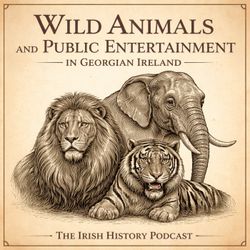
Wild Animals and Public Entertainment in Georgian Ireland
28:54|In the late eighteenth and early nineteenth centuries, lions, tigers and even elephants toured towns and cities across Ireland. Long before modern zoos, travelling menageries brought wild animals from across the globe into marketplaces, fairgrounds and urban streets. For many people, this was their first encounter with creatures they had only ever seen in books or sermons.In this episode, I’m joined by historian Karina Holton to explore the fascinating and largely forgotten history of Irish menageries between 1790 and 1840. We discuss what these exhibitions were, how they differed from circuses and modern zoos, and what it was actually like to visit one. What animals could audiences expect to see?We also examine the controversies surrounding these shows. Not everyone welcomed them. There were dramatic incidents involving escapes and attacks, concerns about public safety, and growing criticism around animal welfare.Sound by Kate Dunlea.About My GuestKarina Holton completed her PhD at Dublin City University and has published widely on eighteenth and nineteenth century Ireland. She is the author of Valentine Lawless, Lord Cloncurry, 1773 to 1853: From United Irishman to Liberal Politician. https://www.fourcourtspress.ie/books/2018/valentine-lawless-lord-cloncurryThis episode is inspired by her article:‘A Most Curious Collection of Foreign Beasts’: Menageries in Ireland, 1790 to 1840. You can read it here https://www.cambridge.org/core/services/aop-cambridge-core/content/view/24DB1506CB06E117BEA2C1819FC312AA/S0021121425100916a.pdf/most_curious_collection_of_foreign_beasts_menageries_in_ireland_17901840.pdf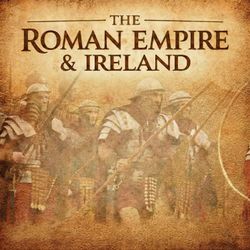
Why Didn't the Romans Invade Ireland?
55:48|While the Roman Empire conquered much of western Europe and established a powerful presence in Britain, Ireland remained beyond its grasp. But why? In this episode, I am joined by Dr Jacqueline Cahill Wilson to explore how Ireland interacted with the Roman world. It is a complex and intriguing story. Jacqueline reveals the considerable archaeological evidence that suggests Roman communities did exist in Ireland. If there was no invasion, however, this raises an obvious question: who were these people, why did they come to Ireland, and what were they doing there? Sound by Kate Dunlea. My guest on this episode is Dr Jacqueline Cahill Wilson. Originally from County Longford, she is a Research Fellow at the Royal Agricultural University in Cirencester. She holds an MA from the University of Reading and a PhD from the University of Bristol. From 2011 to 2015, she served first as Principal Investigator and later as Project Director of a major research project with the Discovery Programme in Dublin titled Late Iron Age and Roman Ireland. Her research focuses on social structures and identity in the past, and on how communities defined themselves and others through material evidence in the archaeological record. A key part of her work has involved the use of isotope geochemistry on human burials in Ireland, allowing researchers to identify where individuals originated from and challenging long held assumptions about identity and mobility in the past. Her work has consistently explored the interconnectedness of Ireland in its Iron Age with Britain and Europe under Roman control, periods that are often studied separately despite unfolding at the same time. She is currently working on a book titled Within or Without: Ireland in the Roman World, which brings together her doctoral research, the Discovery Programme project, and her subsequent research into a new historical study for a general readership.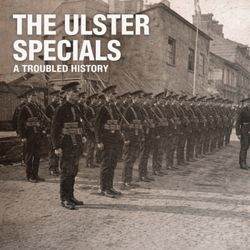
The Ulster Special Constabulary - A Troubled History
45:12|The Ulster Special Constabulary was one of the most controversial forces in modern Irish history. Formed amid the violence and uncertainty of the early 1920s, it was viewed by many nationalists as a sectarian militia, while in parts of the unionist community it was remembered as a force that defended order during a time of upheaval.As debates around Irish unification return to the center of political life, the legacy of the past is once again intruding into the present. In this episode of the Irish History Podcast, Fin Dwyer is joined by historian Patrick Mulroe to examine the origins of the Ulster Special Constabulary, the conditions that led to its creation, and why its history remains so contested more than a century later.Drawing on his article ‘Matters Best Forgotten’: The Ulster Special Constabulary in 1922, Patrick explores how and why the force became associated with some of the worst violence of the decade, and why its story continues to provoke discomfort, silence and debate today.Support the show and get ad-free podcasts nd avideosSound Kate Dunlea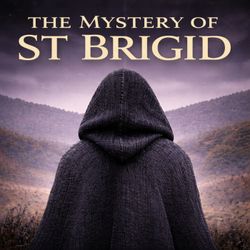
The Mystery of St Brigid
28:43|Each February Ireland celebrates St Brigid, one of the most beloved figures in Irish history. She is woven into the landscape, the calendar and the culture, yet a simple question hangs over her story. Did she ever really exist?You may recall a very short episode on this topic last year. Since then, I have rethought the evidence, changed my view and this episode takes a much deeper look at the history.For centuries St Brigid has been remembered as a saint who stood alongside St Patrick at the dawn of Irish Christianity. In recent decades, however, a growing argument has claimed she was never a historical figure at all, but a pagan goddess transformed into a Christian saint.This episode is a journey through the turbulent fifth century to examine the evidence. Drawing on early medieval sources, folklore, ritual, and modern research to explore St Brigid the woman, Brigid the goddess, and try and determine where the truth lies.Support the show at www.patreon.com/irishpodcastSources and Further Reading: Dictionary of Irish Biography Brigit: https://www.dib.ie/biography/brigit-brighid-brid-bride-bridget-a0961 Johnson, Elva Making St Brigit real in the early middle ageshttps://muse.jhu.edu/verify?url=%2Fpub%2F423%2Farticle%2F941740&r=972076Lawrence, Lisa Pagan Imagery in the Early Lives of Brigit: A Transformation from Goddess to Saint? Proceedings of the Harvard Celtic Colloquium, Vol. 16/17 (1996/1997), pp. 39-54Zacharias Anna Brigid, Ireland’s Anti establishment Saint https://newlinesmag.com/essays/brigid-irelands-antiestablishment-saint/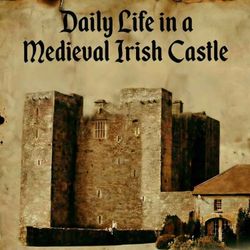
Daily Life in a Medieval Irish Castle: What was it really like?
40:56|What was daily life in a medieval Irish castle really like? In this special episode recorded in Barryscourt Castle I explore the reality behind the myths. My guest Jamie O’Callaghan guides you through reconstructed rooms that reveal everything from deadly defenses to secret chambers to show how people lived and all too often died in a medieval castle. We also talk about food, entertainment and the often bizarre customs that shaped life in one of Ireland's most impressive castles in the late Middle Ages.There is a video to accompany this podcast at https://www.patreon.com/posts/148600059You can find out more about Barryscourt at heritageireland.ie/places-to-visit/barryscourt-castleSound by Kate Dunlea.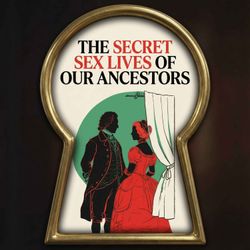
The Secret Sex Lives of our Ancestors
45:06|This episode includes discussion of sex and is not suitable for younger listeners.Sex has always been a key part of Irish life. Yet given its intimate and private nature it often leaves little trace in the historical record. One rare exception comes from the Presbyterian Kirk Session, a church court that kept detailed accounts of behaviour it considered sinful. These records open a unique window into how people in eighteenth century Ireland navigated desire, shame, romance and rule breaking.In this episode I am joined by Dr Leanne Calvert whose book Pious and Promiscuous: Life, Love and Family in Presbyterian Ulster uncovers the hidden sex lives of ordinary men and women in the 18th century. The conversation explores beliefs about sex, the reality of everyday relationships, courtship, affairs, pregnancy and the ways communities tried to control intimacy.Get your copy of Leanne's book Pious and Promiscuous: Life, Love and Family in Presbyterian Ulster herehttps://shop.ria.ie/products/piousLeanne's Blog: https://promiscuouspresbyterian.wordpress.com/Work profile: https://pure.ul.ie/en/persons/leanne-calvert/Sound by Kate Dunlea.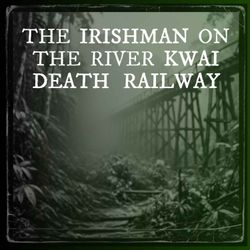
Railway of Death: The Irishman Who Survived Japanese Prison Camp in World War II
40:34|The forgotten story of the Irishman forced to work on Japan's Railway of Death which inspired the film The Bridge over the River Kwai.In 1942 Britain suffered one of its worst defeats when Singapore fell to the Japanese Army. Tens of thousands were taken prisoner including the Dubliner Don Kennedy. This began a brutal ordeal. Don was forced to help build what became known as Japan’s Railway of Death through the jungles of South East Asia.In this episode Don’s son Fergus tells the remarkable story of how his father became involved in constructing the notorious River Kwai railway. Fergus shares how his father endured starvation, disease and brutality in the jungles of South East Asia.Fergus has published Don’s story in his recent book From Ballybunion to the Kwai. You can get your copy here https://www.gillbooks.ie/history/history/ballybunion-to-the-river-kwaiSound by Kate Dunlea. Support the show at www.patreon.com/irishpodcast
The Battle of Vinegar Hill: The Last Stand of the 1798 Rebellion?
01:03:06|In the final episode of this series we follow the 1798 rebellion into its most dramatic and desperate days. As fear grips Dublin and battles erupt across Wexford and Ulster the future of Ireland hangs in the balance. The story details the major clash on the Avoca River at Arklow and then finally brings us to the slopes of Vinegar Hill where the fate of the rising is decided. This episode also sees the exiled rebel leader Wolfe Tone return as a French invasion force finally arrives altering events in unexpected ways.This all sets the stage for one of the darkest summers in Irish history as the island is subjected to a reign of terror that echoes the violence that swept through Paris in the bloodiest days of the French Revolution.Support the show: Patreon.com/irishpodcast Find a comprehensive reading list for the 1798 series: https://www.patreon.com/posts/138580354Map of key locations: https://www.patreon.com/posts/143849510Sound by Kate DunleaAdditional narration by Aidan Crow and Therese MurrayAdditional research by Stewart Reddin